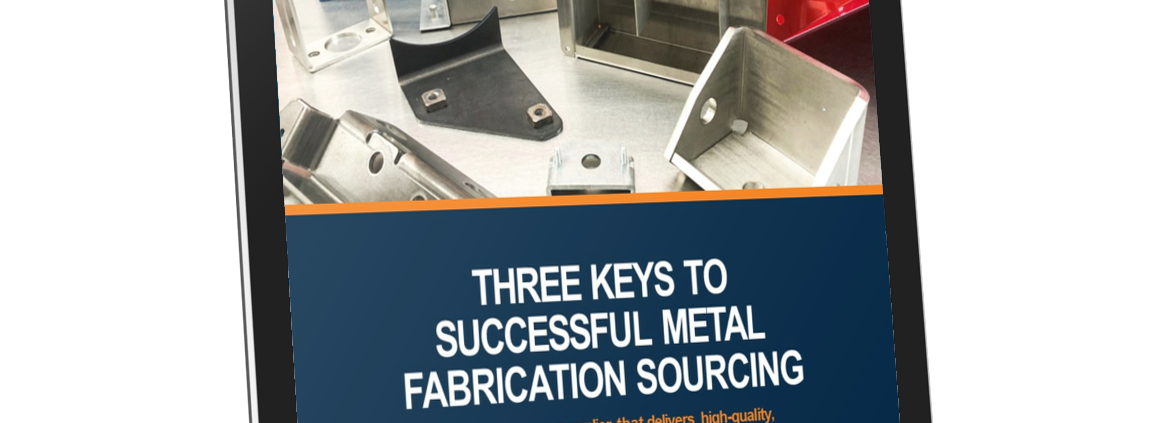If you’re in the planning phase of your next product launch or production run, sourcing a qualified metal fabrication supplier should be at the top of your checklist. The right partner can make the difference between on-time delivery and production delays, project success or failure, profit and loss.
As a partner to large OEMs and their tier one suppliers, we’ve seen first-hand how supplier issues can create a cascade of issues. And we vowed to never make the same mistakes. Whether you’re a buyer or an engineer, finding a reliable contract manufacturer with advanced metal fabrication capabilities requires careful consideration. Supplier selection may start with an evaluation of your specific project requirements, but it shouldn’t end there.
To help guide you through this critical process, we recently created an e-book called Three Keys to Successful Metal Fabrication Sourcing. From our experience, earning “preferred partner” status boils down to the three “Cs” of supplier consistency: cost, capabilities and culture. Cost is the most obvious entry point for most supplier evaluations but should never be considered on its own. The breadth of supplier’s fabrication capabilities and the strength of their culture are equally important indicators of success.
While we welcome you to download our free e-book, continue reading for a summary of the three Cs of choosing a partner that delivers on their promises.
1. Cost does not equal price. Many supplier searches start — and sometimes end — with cost. It’s often the first question we’re asked when contacted to bid on a job. But if minimizing expenses and maximizing profits are among your business priorities, you need to start by understanding the difference between cost and price.
If your strategy is to accept the lowest bid, be prepared to deal with the potential consequences:
- Project support issues, such as engineering, fabrication and finishing problems
- Lost production time due to missing and/or faulty parts
- Quality management challenges — from shoddy inspection and incomplete documentation to non-conformance issues
2. Capabilities must be confirmed. If you’re sourcing a new product from a new metal fabrication supplier, what’s your process for verifying their capabilities? How do you know if they have the technical skills, process and quality controls, and specialized experience to produce your part? How can you be sure that their facilities are configured to meet your high quality standards?
It’s ok to start with a supplier website evaluation, but how do you really know if their operation runs as efficiently as it appears? Conducting an on-site visit to their facilities is truly the only way to confirm it. If a supplier cares about winning your business, they’ll welcome an opportunity to prove that they have the right capabilities, processes and staff needed to meet your specific fabrication requirements.
3. Culture is a stabilizing force. Some may be surprised to find the intangible quality of “culture” on this list, but we’ve discovered that culture is more important than ever. Only in a stable, healthy and thriving culture — where employees are aligned and motivated by a shared commitment to process rigor, consistency and quality standards — can repeatable, high-grade production be achieved.
At its essence, culture is about the people overseeing and executing your fabrication projects — from sales and customer service to operations, production and shipping. In a healthy culture, each of these roles is equally committed to and responsible for your success. From this perspective, it’s extremely important that your supplier’s culture aligns with your business expectations.
As we stated in our e-book: “Costs are negotiable. Capabilities are pre-requisites. But culture is a differentiator.” To learn more about successfully selecting your next metal fabrication supplier, please download our free guide.




